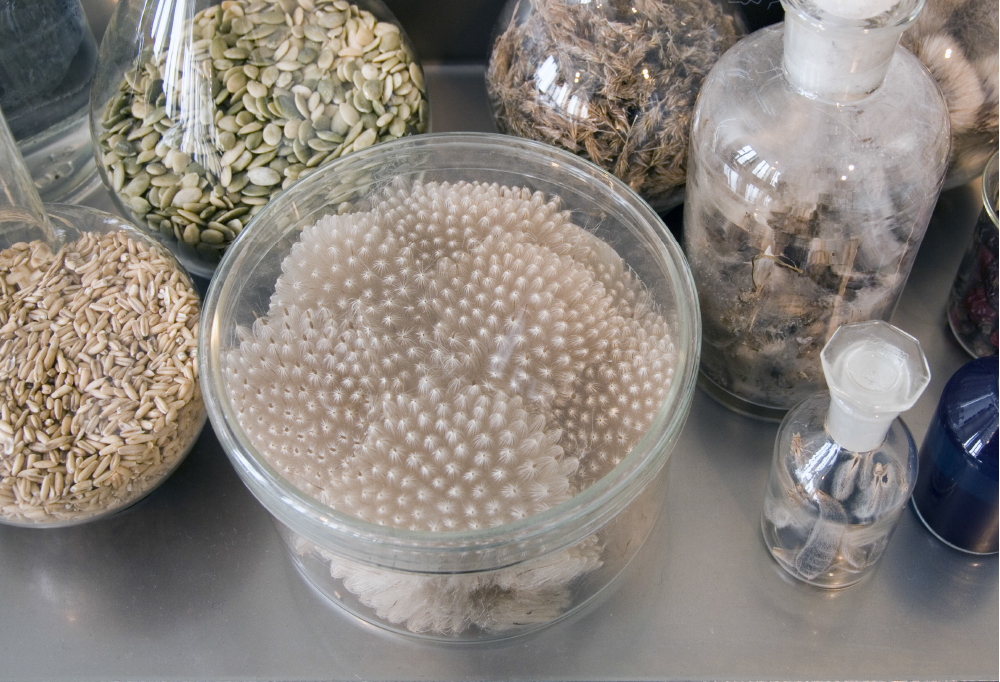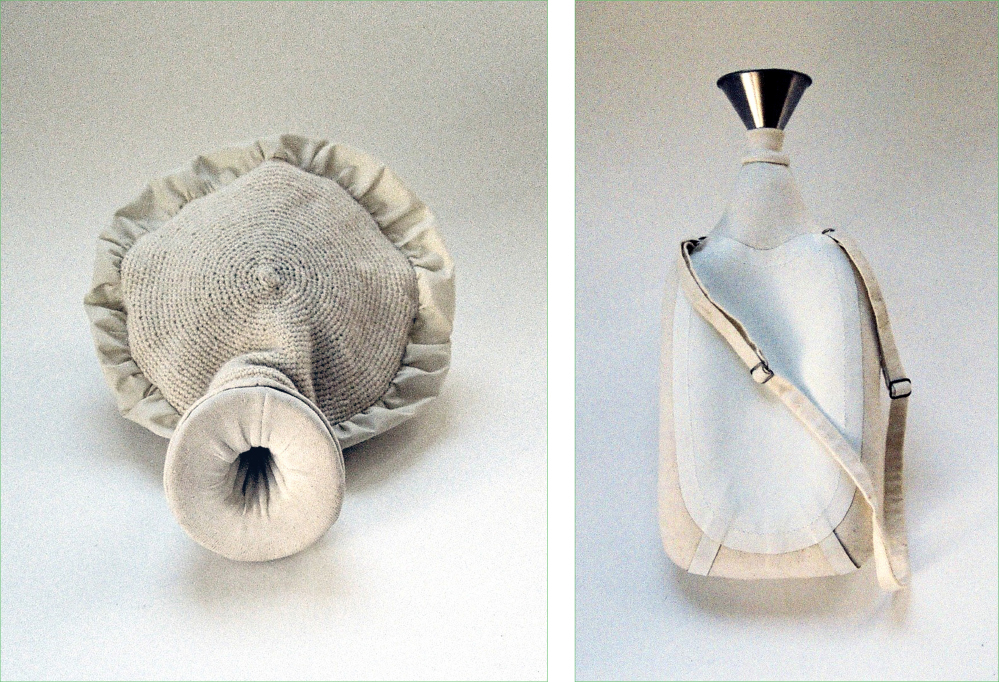In the exhibition Mot Naturen (Towards Nature), I am taking an interest in the global agricultural industry and its expansive change, where multinational companies patent seeds and thereby own the plants’ reproductive abilities. Companies can patent a plant substance and at the same time privatise an entire plant family, as the substance can be found throughout the family. Sterilising the seeds’ DNA is another biotechnology that has been put into practice.
One scene in Mot Naturen (Towards Nature) shows various seeds and their ingenious “wait” for favourable germination signals. For some plants, the positive signal is the journey through an animal’s digestive system. An internal journey for the seed, where the plant’s germination-inhibiting substance is destroyed and the plant can reproduce – as depicted in the objects Spjälkning (Decomposition).
Vandana Shiva questions our view of traditional knowledge. She argues that patent laws must acknowledge different forms of traditions. Human rights are violated when companies can seize the knowledge that farmers have accumulated for generations and transform it into property via patents.
The knowledge that is patented today has, in some cases, existed among the population for generations and has been used in everyday life, but despite this, the knowledge is classified as an invention when companies obtain the right to it. To own doesn’t mean to have knowledge in this context, but that you have the right to commercialise it.
Vandana Shiva, Nuclear Physicist, Environmental Activist.
Exhibition text
Thomas Millroth, Author, Critic and Former Director of Ystad Art Museum.
Click on the images for materials and techniques.











